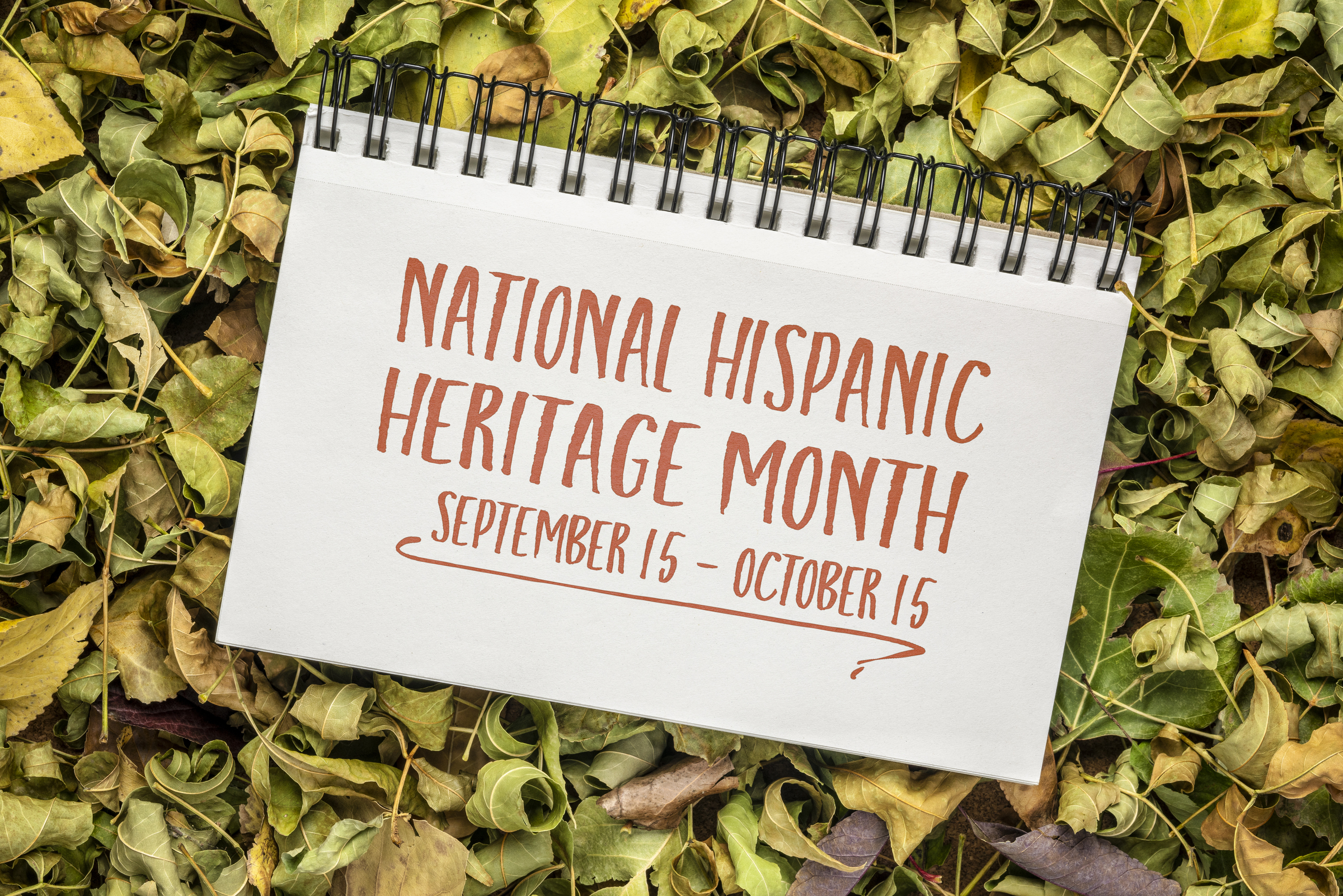Current Events, NYC Workplace Discrimination
Can We Celebrate Hispanic Heritage Month at Work?
September 14, 2025

Embracing Cultural Celebration in the Modern Workplace
Each year, from September 15 to October 15, the United States celebrates Hispanic Heritage Month, a time to honor the immense contributions of Hispanic and Latin Americans to our nation’s growing tapestry of history. In the workplace, our homes, and our public spaces, this presents a valuable opportunity to foster a more inclusive and engaged environment. However, in a climate of increasing scrutiny around Diversity, Equity, and Inclusion (DEI) initiatives, many well-intentioned employers can hesitate over the fear that any kind of cultural celebration could invite legal risk. This uncertainty can have a chilling effect, leading some to avoid these important observances altogether.
We intend for this to serve as a clear and confident roadmap. Celebrating Hispanic heritage is not only permissible but is also a powerful tool for building a positive company culture when done correctly. Recent guidance from federal agencies distinguishes between prohibited discriminatory practices and permissible “educational, cultural, or historical observances”.
More Than a Month: The Rich Tapestry of Hispanic Heritage
Understanding the history of Hispanic Heritage Month is the first step toward celebrating it authentically. The celebration was first introduced in June of 1968 by California Congressman George E. Brown, who was from East Los Angeles, represented a predominant Latin community. The observance began in 1968 as a week-long event under President Lyndon B. Johnson. Not until 1987 did the decision to expand the celebration into the current 31-day period occur, courtesy of Representative Esteban E. Torres of California. September 14th, 1989 saw President George H.W. Bush officially declared the period of September 15th to October 15th as National Hispanic Heritage Month.
The timing of this 31-day period is deeply significant, because of the multiple victories of independence for Latin American countries. The celebration kicks off on September 15, marking the anniversary of independence for five Central American nations: Costa Rica, El Salvador, Guatemala, Honduras, and Nicaragua. This is followed by Mexico’s Independence Day on September 16th, Chile’s on September 18th, and Belize from Great Britain on September 21st, 1981. This historical anchor underscores that “Hispanic” is not a monolithic identity but a vibrant mosaic of diverse nationalities, cultures, and histories tracing back to Spain, the Caribbean, and Central and South America. From the trailblazing jurisprudence of Supreme Court Justice Sonia Sotomayor to the pioneering space exploration of Dr. Ellen Ochoa, the first Latina in space, the contributions of this community are woven into every aspect of American success.
For employers, recognizing this diversity is more than a cultural courtesy; it is a legal shield. Federal law prohibits national origin discrimination, which often arises from treating individuals based on broad, inaccurate stereotypes. By designing celebrations that acknowledge the specific and varied histories within the Hispanic community, an employer demonstrates a nuanced understanding that counters tokenism and reinforces a respectful, inclusive environment—the very opposite of the “atmosphere of inferiority, isolation and intimidation” that can lead to legal liability.
Navigating Workplace Celebrations During Hispanic Heritage Month
Despite ongoing public discourse around inclusivity initiatives, organizations can and should celebrate Hispanic Heritage Month at work with complete confidence. A key Department of Justice memorandum issued on February 5, 2025, provides clear guidance, explicitly stating that efforts to address problematic practices do not prohibit “educational, cultural, or historical observances—such as Black History Month… or similar events—that celebrate diversity, recognize historical contributions, and promote awareness without engaging in exclusion or discrimination. This official clarification removes any ambiguity: celebrating Hispanic Heritage Month is not only legally permissible but actively encouraged when done thoughtfully. The key is focusing on what these celebrations have always done best—education, cultural appreciation, and historical recognition that brings people together rather than divides them.
What makes these celebrations both meaningful and compliant is their inclusive nature. When Hispanic Heritage Month events are voluntary, educational, and welcoming to all employees, they fulfill their core purpose of building understanding and appreciation while staying well within legal boundaries. In fact, the principles that have long made these celebrations successful—voluntary participation, educational focus, and inclusive programming—now serve as both best practices and legal safeguards. Rather than seeing current discussions as barriers, organizations can view this moment as an opportunity to ensure their Hispanic Heritage Month celebrations are as impactful and unifying as possible.
To help navigate this, employers can follow a clear set of principles:
- Voluntary Participation: Events are open to all employees and allies, with attendance being entirely optional.
- Unifying Communication: Frame the celebration as a shared opportunity for everyone to learn, appreciate, and connect.
- Educational Focus: Center activities on learning about history, art, food, and contributions through guest speakers or shared resources.
Collaborative Planning: Involve a diverse group of employees or an Employee Resource Group (ERG) to ensure authenticity and avoid appropriation.
When Celebration is Denied: Understanding National Origin Discrimination
A critical question emerges for employees: “What happens when employers discriminate by banning Hispanic heritage events while permitting others?” Understanding your rights under Title VII of the Civil Rights Act of 1964 empowers you to advocate for equal treatment. The law prohibits workplace discrimination based on national origin, with the Equal Employment Opportunity Commission (EEOC) broadly interpreting this protection to encompass ancestry, culture, and ethnicity.
When workplace policies create barriers, they actually open doors to more meaningful and authentic celebrations. Employees can build stronger community bonds by organizing vibrant off-site gatherings where cultural traditions can be shared more freely and personally. Informal lunch groups become opportunities to introduce colleagues to authentic cultural foods and stories in a relaxed, welcoming atmosphere. Employee resource groups meeting outside work hours often develop into powerful networks that provide mentorship, professional development, and lasting friendships that extend far beyond the workplace. Documenting disparate treatment serves not just as evidence, but as a catalyst for positive organizational change. When employees record which cultural events receive support versus those that don’t, they create a foundation for constructive dialogue with leadership about building a truly inclusive workplace culture. This documentation becomes a roadmap for transformation rather than just a legal record.
Most importantly, discriminatory policies ultimately fail in their intent because they cannot touch the strength, pride, and resilience that define cultural identity. These challenges often galvanize communities, leading to more creative, impactful celebrations and stronger advocacy for workplace equity. Every act of celebrating heritage—whether inside or outside the workplace—contributes to a larger movement toward recognition, respect, and genuine inclusion that benefits everyone.
Highlighting Key Victories from Latina Lawmakers
While we’re at it, we want to take a moment and honor some of the recent contributions made by some of our Latina lawmakers, right here in New York State!
Assemblymember Jessica Gonzalez-Rojas was reelected in November 2024 continuing her work of translating advocacy into state law. A Queer Latina activist and public school parent with a long history and reproductive justice and community organizing. Her legislative agenda demonstrates a clear focus on tangible, kitchen table issues that directly affect the daily lives and budgets of working class, Hispanic New Yorkers. Her key legislative achievements in this period include:
- The Universal School Meals Act: as the prime sponsor, Gonzalez Rojas secured $145,000,000 to expand free breakfast and lunch to 86% of students statewide. The inclusion of this act was celebrated in May 2025 directly addressing food insecurity for countless low-income working families.
- The Reproductive Freedom and Equity Fund: During the 2024 budget season, she secured $25 million to codify her legislation establishing this fund, which provides critical support to abortion providers in the New York abortion Access Fund.
Council Member Tiffany Caban, a former public defender representing Queens championed a slightly different, but equally impactful form of progress: procedural justice.
- R.E.C.E.I.P.T.S. Act: Her act addresses the disempowering and often dehumanizing process of navigating city bureaucracy to access essential aid for low-income individuals, particularly immigrants who may face language or technology barriers, this bureaucratic maze is a significant source of stress. Short for Records Ensuring Clarity, Equity, and Integrity and Public Transactions and Services – it reforms the process of accessing existing benefits rather than creating new ones. It requires the Department of Social Services to provide confirmation notices and detailed document receipts for public benefit applications like SNAP and cash assistance.
Protecting Your Rights: A Roadmap for Employees
If you believe you have faced workplace discrimination related to your national origin, you may be wondering, “Can I sue my boss for this?” The path to legal action has specific, time-sensitive steps. Federal law requires that you first file a Charge of Discrimination with the EEOC before you can file a lawsuit.
This administrative process is a mandatory prerequisite, and the deadlines are strict—typically 180 days from the discriminatory act. Missing this deadline can permanently bar you from seeking justice. The process involves submitting a formal statement, after which the EEOC investigates and may offer mediation. Only after this process is complete, or after a certain period, will the EEOC issue a “Right-to-Sue” letter, which allows you to take your case to court.
Navigating this bureaucratic maze is complex, which is why consulting an experienced worker’s rights lawyer is crucial from the very beginning. A lawyer does more than represent you in court; they act as an expert navigator, ensuring your charge is filed correctly and on time, preserving your legal rights, and positioning your case for the best possible outcome, whether through an early settlement or litigation. If successful, remedies can include reinstatement, back pay, and compensatory damages for emotional distress.
Fostering an Inclusive Workplace Together
Celebrating our diverse cultural tapestry is not at odds with the law; it is an expression of the very inclusivity that our laws are designed to protect. Hispanic Heritage Month offers a chance for employers to build stronger, more connected teams and for employees to share their rich cultural backgrounds. By following principles of voluntary participation, educational focus, and open access, companies can host meaningful events that are both legally sound and culturally enriching.
The path to a vibrant, inclusive workplace culture and the path to robust legal compliance are one and the same. By embracing genuine inclusivity, employers build their best defense against discrimination. If you are an employer seeking guidance on creating inclusive policies, or an employee who believes your rights have been violated, do not hesitate to contact a dedicated lawyer. We here at Filippatos PLLC can provide the expert legal counsel you need.
Call a Race & Ethnicity Discrimination Lawyer Today
If you have been experiencing discrimination at your workplace due to your heritage, please give us a call at 888-9-JOBLAW for a free consultation. We will do our utmost to help secure you the justice you deserve.
